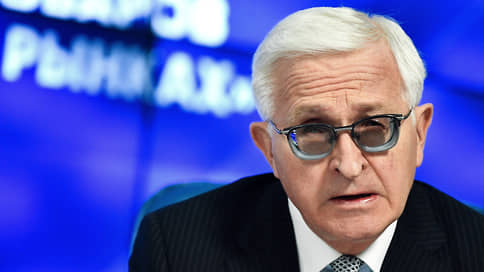RSPP again asks the government to delay the reform of environmental regulation
[ad_1]

The Russian Union of Industrialists and Entrepreneurs (RSPP) has found new reasons to ask the government for a two-year delay in obtaining integrated environmental permits (IEP) for the most environmentally unfavorable facilities of companies. To obtain an IEP, it is necessary either that such facilities comply with the best available technologies, or a plan to reduce the environmental load agreed with regulators. The chances of receiving deferrals from the RSPP, however, are slim.
On July 20, the head of the RSPP Alexander Shokhin sent a letter to the “environmental” Deputy Prime Minister Victoria Abramchenko with a request to postpone the deadline for obtaining integrated environmental permits for the most environmentally unfavorable industrial facilities from the end of 2024 to the end of 2026. To qualify for an IEP, businesses must agree to an environmental performance improvement program or confirm the transition to industry best available technologies.
Recall that due to sanctions in 2022 for objects from the top 300 list (contribution to total emissions and discharges of pollutants in the Russian Federation – at least 60%), the deadline for applying for IEP has already been shifted by two years, as well as the deadlines for implementing programs to increase environmental efficiency and the creation of automatic control systems for facilities that have received IEP earlier. Time was given for the selection of analogues of imported equipment. “In addition, the term for issuing IEP by the territorial body of Rosprirodnadzor was reduced from four months to 63 working days, and it is available in electronic form,” Kommersant was told at the Ministry of Natural Resources, surprised at the initiative of the RSPP. Nevertheless, over 4.5 years of reform, out of more than 6,000 objects of the first category, a little more than 200 received IEP.
RSPP, in its request for another delay, refers to “systemic and technical shortcomings” and excessive requirements of the Ministry of Natural Resources (8 out of 20 regulations on the issuance of IEP during this time have become invalid and have been developed again), as well as the fact that by 2024 the Ministry of Natural Resources intends to to expand the list of pollutants, which will require revision of emission inventory reports and draft standards for permissible discharges. However, this will not cause a total revision of the reports: almost all new pollutants are contained in hygienic standards and should already be taken into account, Irina Demina, CEO of ENV-consulting, notes. Separately, the RSPP is concerned about the fate of electric power companies (especially coal-fired thermal power plants) – a program to improve their environmental efficiency is impossible without the reconstruction of the main and installation of new gas cleaning equipment, which requires coordination with the system operator of the Unified Energy System.
In total, from 2019 to the end of July 2023, 653 applications for the issuance of IEP were submitted, 219 were approved, 303 applications were denied (for the dirtiest facilities – 174, 69 and 84, respectively). “A small number of CEPs is due to the slowness in filing applications in the hope of another postponement and the usual extension of existing permits,” Ms. Demina is convinced, explaining the high number of refusals, primarily by non-compliance with the requirements of the law when calculating the standards for permissible emissions, discharges and waste . “Business is always not ready for a new responsibility. At the same time, all fair arguments are based on the disorderly actions of the Ministry of Natural Resources. It would be right to identify several dozen major pollutants and launch the system, and then expand the list and deepen reporting. This strategy would be as gentle as possible for business and would exclude manipulations with postponement,” says Boris Morgunov, head of the Institute of Ecology at the Higher School of Economics.
In April, the head of Rosprirodnadzor, Svetlana Radionova, admitted that even if all companies want to get IEP at once, it will be difficult to do it on time, but she expressed the hope that “there will be no extension of the issuance procedures.” Let us recall that work without IEP implies fines for companies and management, as well as coefficients of 100 and 25 to pay for negative environmental impact and waste disposal.
[ad_2]
Source link






